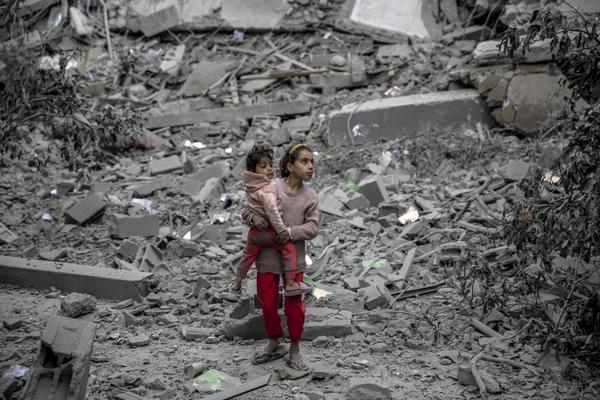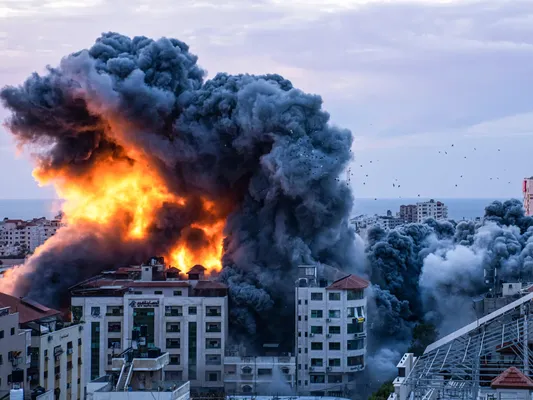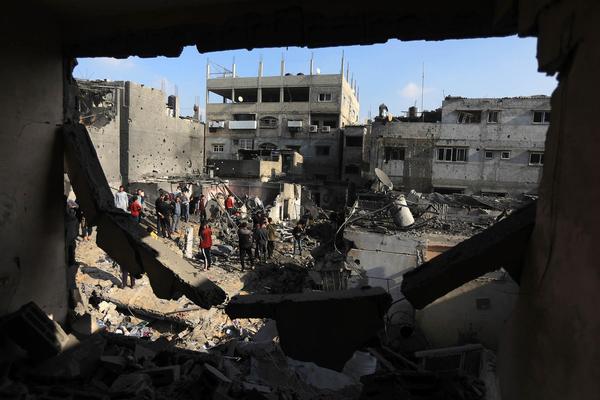



The Impactful History of the Israel-Gaza War: Understanding the Conflict and the Importance of Humanitarian Aid
Introduction
The Israel-Gaza war is a complex and deeply rooted conflict with significant humanitarian implications. Understanding its history is crucial for comprehending the current situation and recognizing the urgent need for donations to aid those affected. This article delves into the historical context, recent developments, and the reasons why supporting humanitarian efforts is more important than ever.
The History of the Israel-Gaza War
Origins of the Conflict
The Israel-Gaza conflict has its origins in the broader Israeli-Palestinian conflict, which dates back to the early 20th century. The creation of the state of Israel in 1948 and the subsequent displacement of Palestinians set the stage for ongoing tensions.
Key Historical Events
- 1948 Arab-Israeli War: Following Israel's declaration of independence, neighboring Arab states invaded, leading to significant territorial changes and the displacement of Palestinians. Casualties: Approximately 6,000 Israelis and 15,000 Arabs were killed. Estimated monetary damages: $500 million for Israel and $1.5 billion for the Arab states.
- 1967 Six-Day War: Israel captured Gaza from Egypt, along with other territories, exacerbating the conflict. Casualties: Around 800 Israelis and 20,000 Arabs were killed. Estimated monetary damages: $1 billion for Israel and $2.5 billion for the Arab states.
- 1987 First Intifada: A Palestinian uprising against Israeli occupation marked a significant escalation in violence. Casualties: Approximately 200 Israelis and 1,500 Palestinians were killed. Estimated monetary damages: $600 million for Israel and $1 billion for Palestinians.
- 2005 Israeli Disengagement: Israel unilaterally withdrew from Gaza, but the blockade remained, leading to economic hardship for Gazans. There were no significant casualties directly related to this event. Estimated monetary damages: The economic impact on Gaza was severe, with damages estimated at $3 billion due to the blockade and subsequent economic isolation.
Formation of Hamas
Hamas, a militant Islamic organization, gained control of Gaza in 2007, intensifying the conflict with Israel. This period saw numerous violent confrontations, including rocket attacks and Israeli airstrikes. Hamas, originally established in 1987 as an offshoot of the Muslim Brotherhood, has since maintained a significant military presence in Gaza through its armed wing, the Izz ad-Din al-Qassam Brigades.
As of recent reports, Hamas has an estimated 30,000 fighters. Since the escalation of conflict in October 2023, the Israel Defense Forces (IDF) have reported killing approximately 12,000 Hamas operatives. Additionally, thousands of Hamas fighters have been wounded or captured in various military operations. The ongoing conflict has also led to the arrest of numerous Hamas members by Israeli forces, significantly impacting the organization's operational capacity.
The conflict has resulted in substantial civilian casualties and widespread destruction in Gaza. According to the Gaza Health Ministry, tens of thousands of Palestinians, including many Hamas operatives, have been killed in the recent escalations. The humanitarian situation remains dire, with significant shortages of food, water, and medical supplies exacerbating the suffering of the civilian population.
Recent Developments in the Israel-Gaza War
October 2023 Hamas Attack
On October 7, 2023, Hamas launched a surprise attack on Israel, resulting in severe casualties and prompting a harsh Israeli military response. This attack marked one of the deadliest phases in the conflict's history.
Humanitarian Crisis
The ongoing blockade and recent escalations have created a dire humanitarian situation in Gaza. According to recent reports, over 36,000 Palestinians have been killed since October 2023, highlighting the severity of the conflict. The United Nations reports that 80% of Gazans are living below the poverty line, and the majority face severe shortages of essential supplies, including food, water, and medicine.
Current Statistics
- Casualties: Over 36,000 Palestinians and 1,200 Israelis have been killed since the conflict intensified in October 2023. Among the Palestinian casualties, approximately 16,000 are women and children, with 10,000 women and 6,000 children killed. Over 10,000 Palestinian children have lost their fathers, and 3,000 women have become widows.
- Displacement: Approximately 2.1 million Gazans are internally displaced, facing severe shortages of food, water, and medical supplies. About 1.1 million people are experiencing catastrophic food insecurity. Nearly 90,000 housing units have been destroyed, and around 300,000 units have been damaged. As a result, hundreds of thousands of Gazans are homeless, with many living in makeshift shelters or overcrowded conditions.
- Women and Children: Women and children make up about 70% of the total casualties in Gaza. Additionally, 155,000 women in Gaza are pregnant or breastfeeding, with 5,500 expected to deliver in the next month. The ongoing conflict has severely impacted access to healthcare, with only 10 out of 36 hospitals minimally functional and significant destruction of healthcare facilities.
- Fugitives: Over 7,000 people are reported missing, many presumed dead under the rubble due to continuous bombardment. The UN reports that a child in Gaza is killed or wounded every 10 minutes, highlighting the severe impact on the younger population.
- Economic Impact: The destruction of infrastructure and the blockade has crippled Gaza’s economy, with widespread famine and unemployment. The estimated monetary damages amount to $18.5 billion in the first four months of the current conflict, significantly impacting the region's economic stability.
Why It's Important to Donate
Humanitarian Needs
The humanitarian needs in Gaza are immense. With the majority of the population reliant on aid, the blockade has exacerbated shortages of essential supplies, including food, water, and medicine. The UN reports that 80% of Gazans face famine or catastrophic hunger.
Supporting Health and Education
Donations can help provide critical support for health and education services in Gaza. Many children suffer from malnutrition and trauma, with disrupted education systems needing urgent attention to ensure a future for the younger generation.
Rebuilding Efforts
Reconstruction is vital for the long-term stability of Gaza. Donations contribute to rebuilding homes, schools, and hospitals, ensuring that Gazans can live with dignity and security.
Donation Options
To support the children of Gaza, please consider donating through the following options:
FAQs
What is the root cause of the Israel-Gaza conflict?
The root cause lies in the broader Israeli-Palestinian conflict, particularly issues related to territorial disputes, national identity, and historical grievances dating back to the mid-20th century.
How has the international community responded to the conflict?
Responses have varied, with some countries condemning actions by both sides and others taking sides. International organizations like the UN have called for ceasefires and humanitarian aid.
What are the main humanitarian needs in Gaza?
The main needs include food, water, medical supplies, shelter, and educational resources. The blockade and ongoing conflict have severely restricted access to these essentials.
How can I donate to support Gaza?
You can donate through reputable international organizations such as the Red Cross, UNRWA, and various humanitarian NGOs working on the ground in Gaza.
What is the current status of the conflict?
As of now, the conflict remains intense, with ongoing military actions and a significant humanitarian crisis. Efforts for a ceasefire and peace negotiations are ongoing but face many challenges.
Why is it important to stay informed about the Israel-Gaza conflict?
Staying informed helps raise awareness and support for humanitarian efforts, and fosters a better understanding of the complexities involved, contributing to informed advocacy for peace.
Conclusion
Understanding the history and current state of the Israel-Gaza war is essential for recognizing the profound humanitarian needs arising from this conflict. Donations and support are crucial for alleviating the suffering of millions and working towards a peaceful resolution. Your contribution can make a significant difference in the lives of those affected by this enduring conflict.
💔 Donate to Support Gaza's Children
Your donation can make a significant difference in the lives of children affected by the crisis in Gaza. Donate now via Bitcoin or Stripe to provide essential aid and support.
Donate Now